Two Texas A&M AgriLife scientists recognized as Kika De La Garza Science Fellows
Fellowship offers opportunity to learn, promote agricultural and natural resource research and innovation
Two Texas A&M AgriLife Research scientists selected as E. Kika De La Garza Science Fellows by the U.S. Department of Agriculture, USDA, spent two weeks learning more about opportunities for research and education offered through USDA’s departments and agencies.
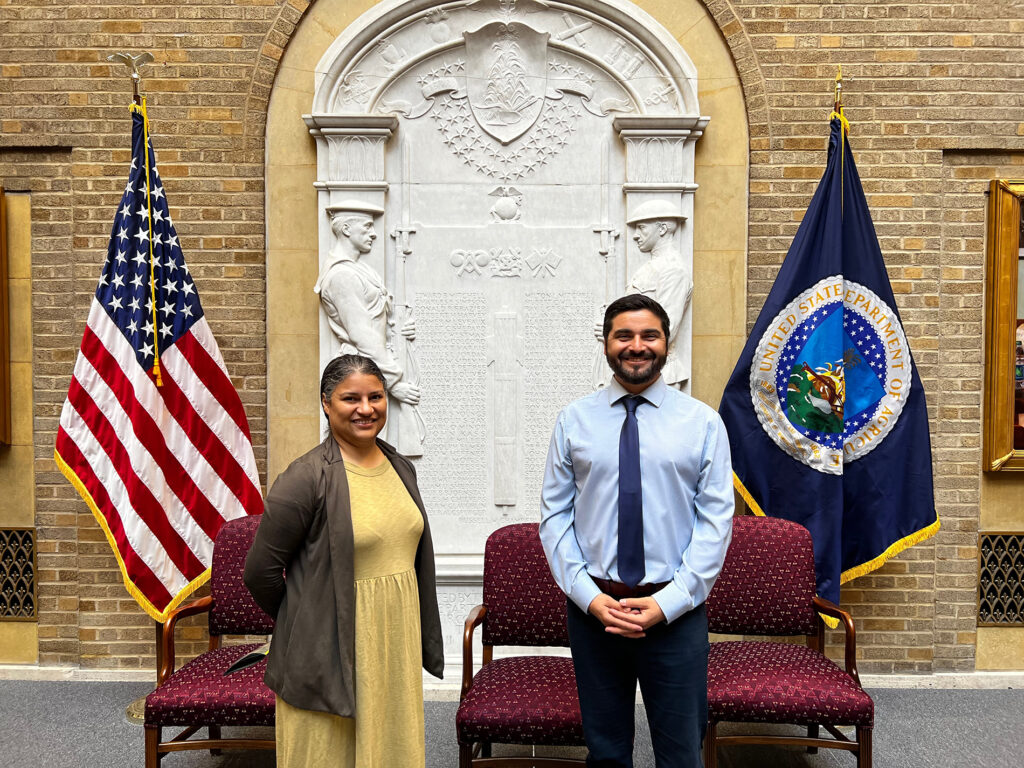
Felipe Aburto, Ph.D., assistant professor in the Department of Soil and Crop Sciences, and Adela Oliva Chavez, assistant professor in the Department of Entomology, both in the Texas A&M College of Agriculture and Life Sciences in Bryan-College Station, were selected to participate in the E. Kika De La Garza Fellows Program.
The program is part of USDA’s Hispanic-Serving Institutions National Program, which is committed to supporting a 21st-century agricultural workforce through professional development, workforce development and exposure to opportunities for faculty, staff and students.
Aburto and Chavez are among 30 Fellows who met with leaders from different USDA agencies, learning about national and regional issues, policymaking and research.
Lisa Ramírez, Ph.D., director of USDA’s Office of Partnerships and Public Engagement, said in a news release that the program exemplifies USDA’s commitment to ensuring equitable access to the department’s programs, services and resources by underserved groups.
Following a weeklong session in Washington, D.C., the Science Fellows spent an additional week collaborating with top scientists from USDA’s Agricultural Research Service, ARS, or the Natural Resources Conservation Service’s, NRCS, Soil Survey Center in Lincoln, Nebraska.
The USDA experience
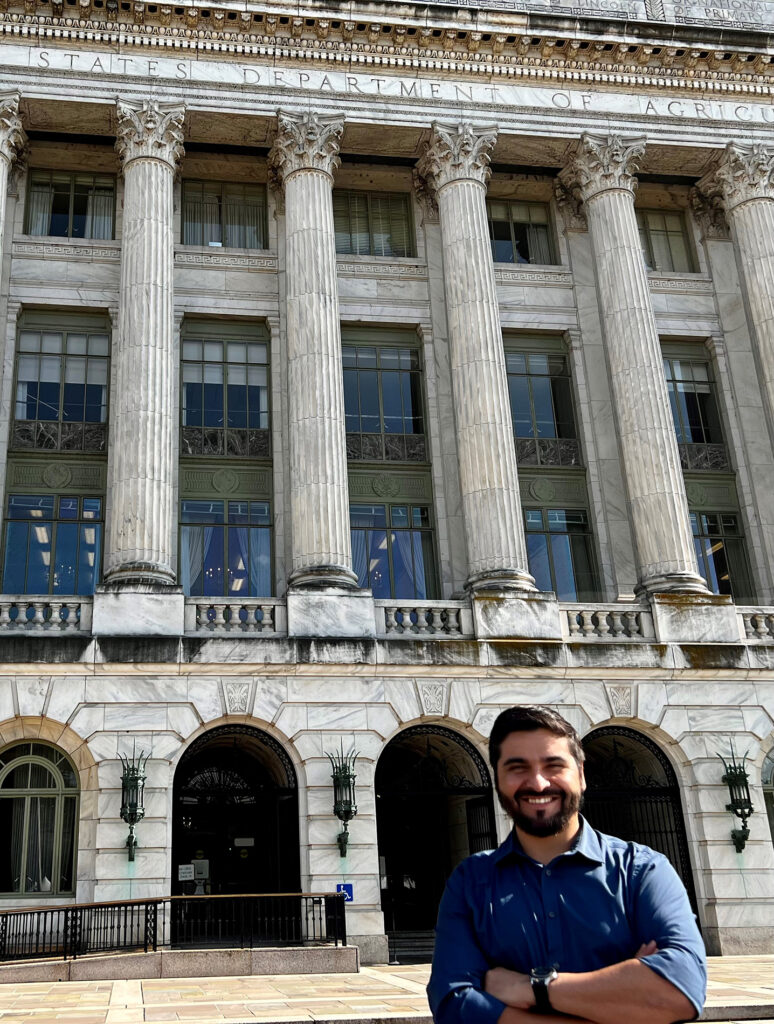
Aburto is a first-generation graduate and a Fulbright Scholarship awardee. He joined Texas A&M as an assistant professor in October 2021.
He said he learned from top officials, directors and managers how to propel his research program in pedology and soil biogeochemistry, as well as improve collaboration between USDA and Texas A&M. The program also will help him identify funding opportunities to enhance diversity in the agricultural workforce and promote training and job opportunities for his students within some of the many USDA subdivisions.
Chavez agreed, saying she has a greater understanding of the opportunities that exist for both researchers and students as USDA reaches out to underrepresented groups from the U.S. population.
“We learned a lot about the different opportunities I can take back to the students in my lab,” she said. “They talked to us about opportunities for science and non-science majors to join the USDA; opportunities like their Pathways Program where USDA helps students find paid internships with tuition assistance to pay for college, and then they can join USDA.
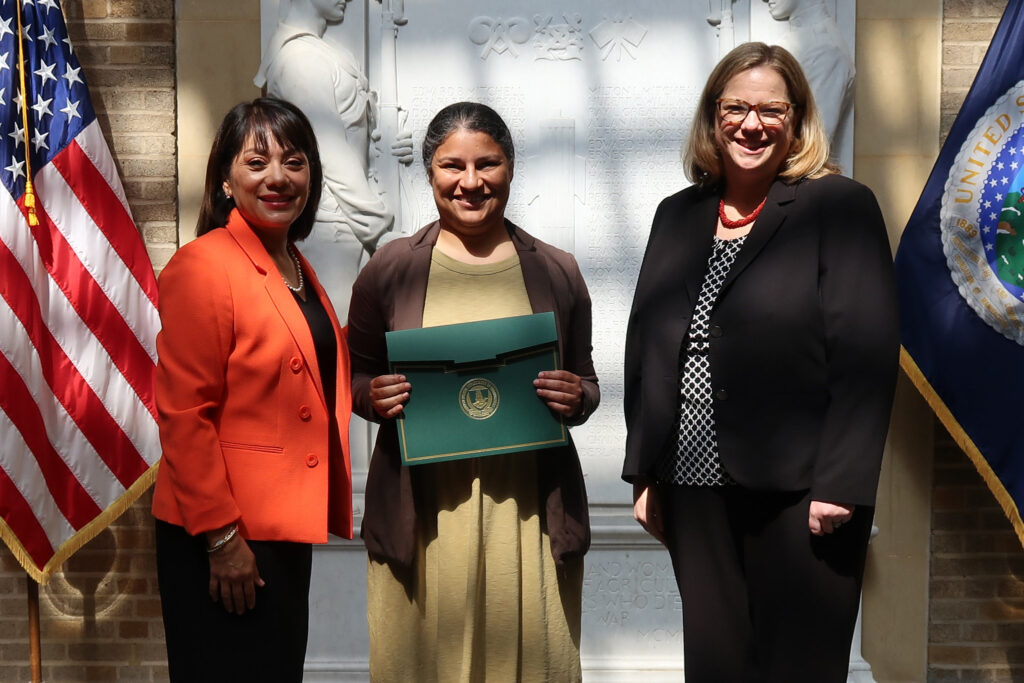
“Many of my students are interested in working for a governmental institution, so I can share that with them. But more importantly, I can show my undergrads because, in many cases, they don’t understand or know what their degree can do for them, where they can go to work. So, I think this is a good opportunity to help them make the connection between what they are doing in school and what they can be doing when they graduate in one of the branches of USDA.”
She, too, will take back information about tapping into research funding opportunities that go beyond the most traditional National Institute of Food and Agriculture and increasing the collaboration with other USDA branches and universities.
Felipe Aburto’s research
Aburto spent his second week of the fellowship at the NRCS National Lab in Lincoln, Nebraska, with host Sky Wills, Ph.D., national leader for soil science research. He visited the laboratories and research facilities and discussed potential collaboration with researchers from the agency.
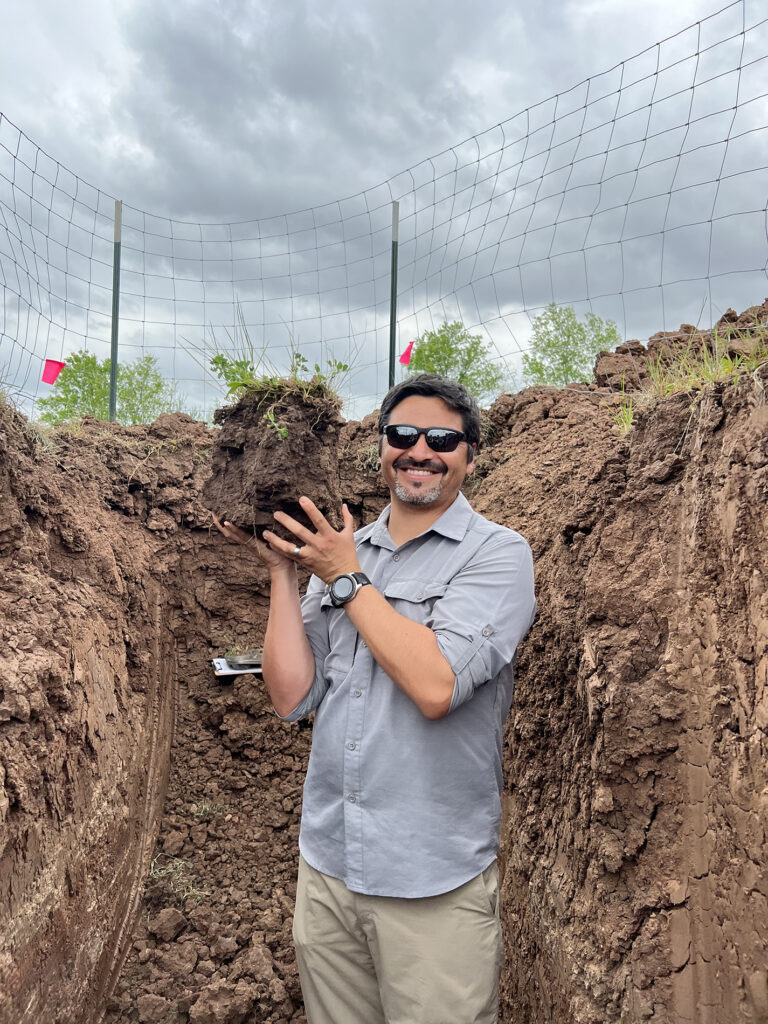
At Texas A&M, he studies how soil evolves and the fundamental processes and interactions among soils, microbes, vegetation and hydrology at different scales. His program also explores how human activities impact soil functions that support vital ecosystem services, including carbon sequestration and nutrient and water cycling.
Aburto has an agriculture engineering degree from the University of Chile and earned his master’s and doctorate in soil and biogeochemistry from the University of California, Davis. Prior to coming to Texas A&M, he was an associate professor at the University of Concepción, UdeC, in Chile.
His international research program applies an interdisciplinary approach to studying soil development and the effect of land-use change and management intensification on soil functionality, focusing on biogeochemical soil processes and mineral weathering.
Aburto teaches undergraduate and graduate courses in soil morphology and interpretations and soil genesis, along with leading the Texas A&M Soil Judging Team. He also holds an adjunct professor position in the faculty of environmental sciences at UdeC. Over the years, he has mentored dozens of undergraduate and graduate students from diverse backgrounds.
In one of his most recent research projects, Aburto studied the efficacy of using rock powder for carbon sequestration and nutrient release in different soils in agroecosystems. Enhanced weathering is based on applying finely ground rock amendments to the soils. These fresh minerals are generally made of easily weatherable minerals that tend to dissolve quickly, consuming carbon dioxide during this weathering reaction. The carbon dioxide then is transported down the soil profiles as bicarbonate, where it may precipitate into carbonates or leach away into stream waters and finally to the ocean.
In other projects, Aburto and his team are studying how agricultural and forest intensification changes weathering rates and the formation of clay minerals and soil organic matter stability, how invasive fire ants modify soil water and nutrient dynamic, and how fast reclaimed soils can develop and recover biogeochemical and physical functionality.
Adela Oliva Chavez’ research
Chavez, originally from Honduras, earned her bachelor’s in agricultural engineering from Escuela Agrícola Panamericana Zamorano in Honduras and her master’s and doctorate in entomology from the University of Minnesota. She came to Texas A&M in 2019.
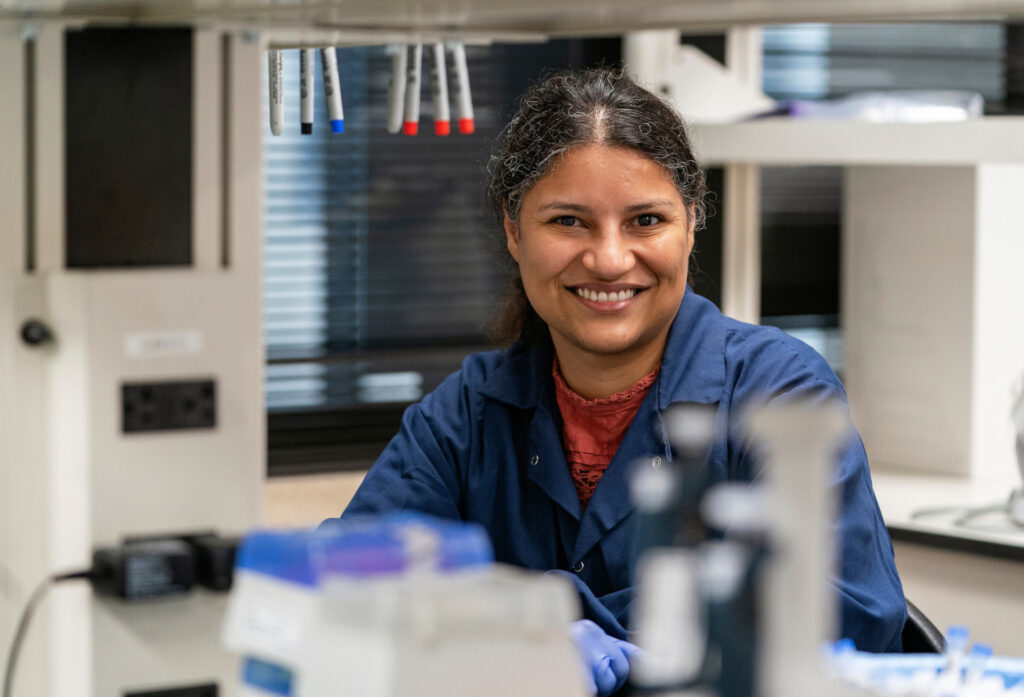
Raised in a family of cattle farmers, Chavez said she has witnessed firsthand the impact of ticks and tick-borne pathogens on livestock. Her research focuses on molecular host-pathogen and vector-pathogen interactions.
Chavez spent her second week of the fellowship at the USDA facilities in Pullman, Washington, where their concentration is on animal diseases. She worked with Susan Noh, DVM, Ph.D., research molecular biologist, and Massaro Ueti, DVM, Ph.D., veterinary medical officer, on two pathogens that infect cattle and try to better understand how to stop tick-borne pathogen transmission.
At Texas A&M, Chavez’s research interests are concentrated on how vector-borne pathogens influence host and vector cellular responses, such as immune responses, cellular trafficking and vesicle secretion. She is also interested in finding management alternatives to stop tick feeding and pathogen transmission in animal systems and in humans.
Her current work focuses on identifying antigens within extracellular vesicles that may provide protection to ticks.
Chavez has published her research in several high-impact journals, including Nature Communications, PNAS and PLoS Pathogens. She has also contributed to a chapter titled “Protozoal and Rickettsial Vaccines” in the book Veterinary Vaccines by the Food and Agriculture Organization. She has also contributed to a chapter titled “Intracellular Pathogens II: Rickettsiales” in The Way Forward: Improving Genetic Systems.
While at Texas A&M, she has secured around $1 million to support her research program as principal investigator and co-investigator.


